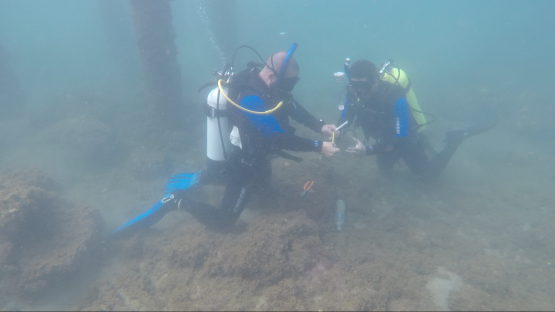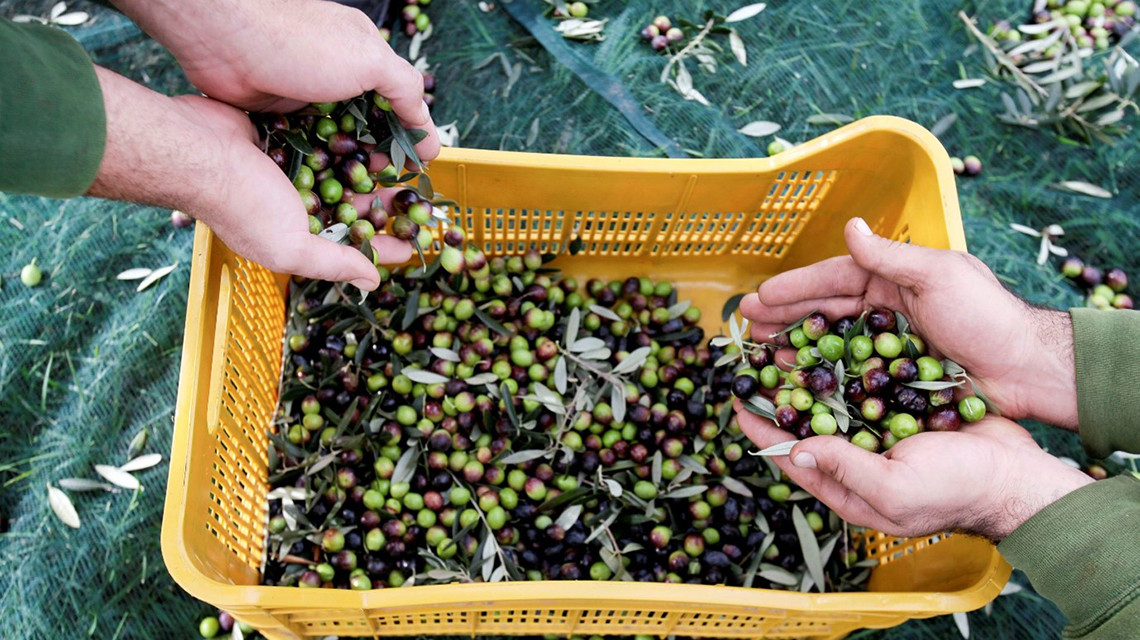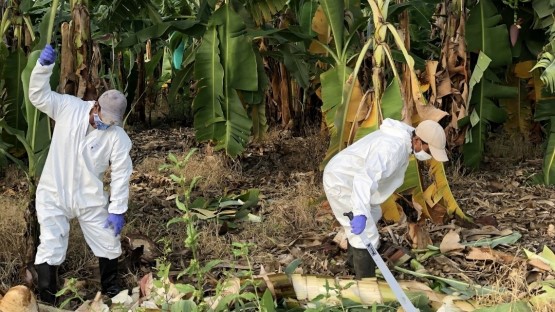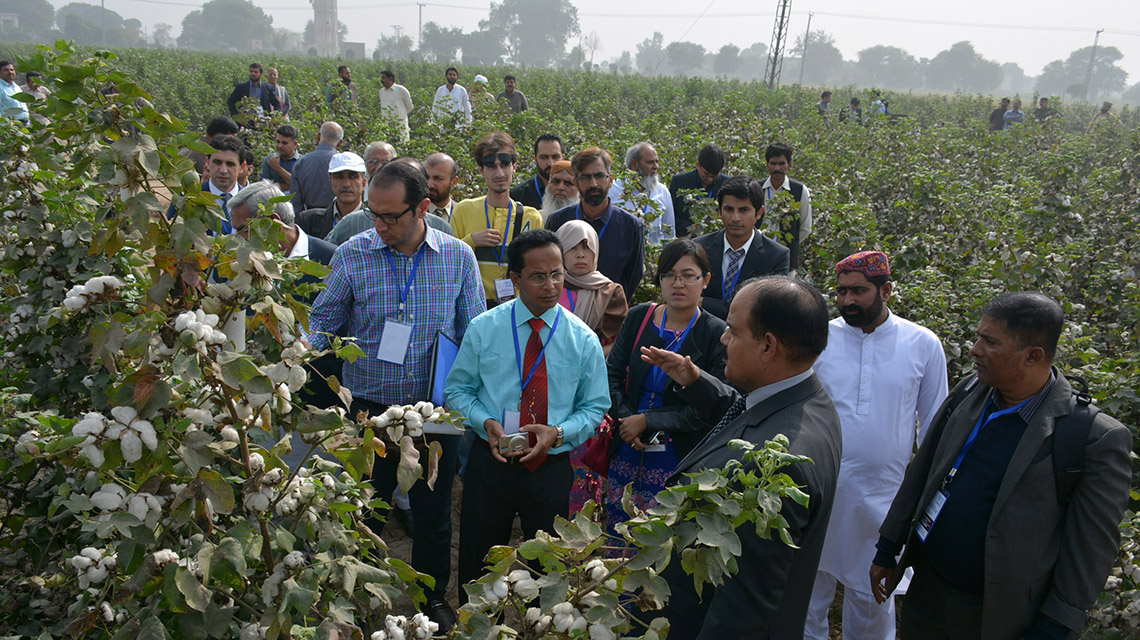Researchers take samples of a microorganism that could produce toxins. (Photo: CEAC)
Oceans link all the continents of the world, and fish don’t respect boundary lines. So it’s fitting that a global organization—the International Atomic Energy Agency—is helping nations detect and monitor both plastic pollution and biotoxins in marine algae that can lead to outbreaks of contaminated seafood.
An olive harvest. Europe produces 60 percent of the world's olive oil. (Photo: FAO)
The International Atomic Energy Agency is developing multiple methods to rapidly screen and authenticate the origin of foods like extra virgin olive oil. With recent heat waves and droughts affecting olive oil yields in Europe—which produces 60 percent of all olive oils—the European Commission has a problem: a growing black market in fake virgin and extra virgin olive oils. According to a 2022 EC report, olive oil is one of the most mislabeled food products in Europe.
A Northrop Grumman Antares rocket, with the Cygnus spacecraft Sally Ride aboard (so named for first American woman to fly in space), launched at 5:32 a.m. EST on November 7, from NASA's Wallops Flight Facility in Virginia. The rocket is captured just after liftoff in this still image from NASA’s live broadcast of the event.
Seeds from the joint laboratories of the International Atomic Energy Agency and the Food and Agriculture Organization of the United Nations (FAO) are onboard a Cygnus spacecraft launched from NASA’s Wallops Flight Facility in Virginia early on November 7. Now orbiting the Earth en route to the International Space Station, the seeds are part of a commercial resupply mission with a payload that includes resources to support more than 250 scientific investigations.
In 2021, the Fusarium wilt disease continued to spread in banana plantations across South America. (Photo: M.Dita/Biodiversity International, Colombia)
A lethal banana disease, known as the Fusarium wilt or Panama wilt, is spreading rapidly in South America and threatening global supplies of the Cavendish banana, the world’s most popular export variety. Working with experts in the Andean countries of Bolivia, Colombia, Ecuador, and Peru, the IAEA and the Food and Agriculture Organization of the United Nations (FAO) are using irradiation and nuclear-derived techniques to combat, manage, and prevent the spread of the disease. The IAEA describes the work in a December 24 news article.






